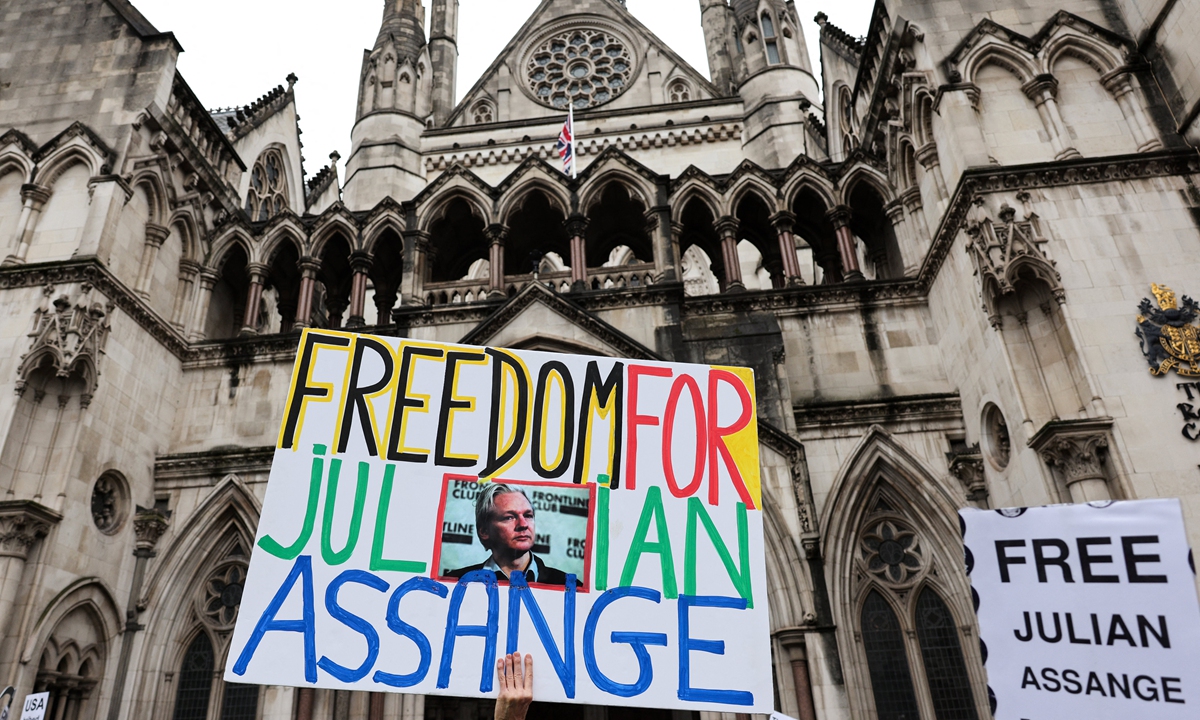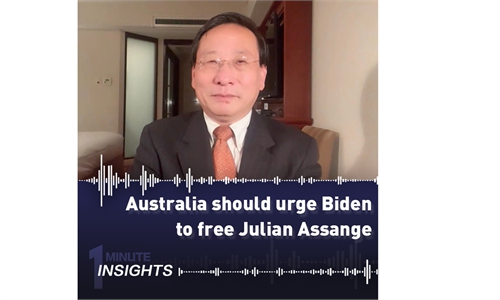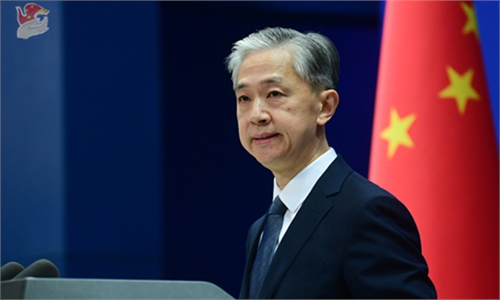
A demonstrator holds a placard reading "Freedom for Julian Assange" during a protest outside of the Royal Courts of Justice, Britain's High Court, on February 21, 2024. Photo: AFP
On February 20 and 21, Julian Assange, the WikiLeaks founder who frustrated the US imperium, its aggrieved national security establishment, and a stable of journalists upset that he had cut their ill-tended lawns, made what has been said to his final appeal to avoid extradition to the United States. Were he to be sent to the US, he faces a possible sentence amounting to 175 years arising from 18 charges, 17 spliced from the oppressive Espionage Act of 1917.What awaits Assange is bound to make anyone squeamish. While the US has promised that it will not use Special Administrative Measures (bar him from using classified evidence, impair access to legal counsel, keep him in solitary confinement), or throw him into the purgatorial nightmare of ADX Florence, a supermax prison facility reserved for the most hardened of criminals, the undertakings are meaningless.
Since 2010, when some 250,000 State Department cables were published on the WikiLeaks website, both the organisation and Assange have been in Washington's sights. Then vice president Joe Biden went so far as to call Assange a "high-tech terrorist." The Obama administration empanelled a grand jury to investigate the activities of the organisation but refused to prosecute, worried that it would set an unpardonable, irreversible precedent. The Trump administration, urged on by then CIA director Mike Pompeo, changed the tune, fitfully declaring that WikiLeaks was a hostile, intelligence service.
Once the publisher touches ground, there is nothing preventing the US Department of Justice from adding new charges, some of which might carry the death penalty.
The campaign to remove and expel Assange from the Ecuadorian embassy began in earnest. Eventually, with the agreement of three governments - the United States, the United Kingdom and Ecuador - police moved in to remove the publisher, who had been described by UK junior foreign secretary Alan Duncan as "a miserable little worm." Prison, the indictment and the extradition request followed in a matter of hours.
Since then, the world has been greeted with a spectacle of monstrous injustice. The WikiLeaks founder is a political prisoner who was denied bail in 2021 and remains in Belmarsh prison, ill and isolated. Assange was found in 2019 by the UN Special Rapporteur on torture, Nils Melzer, to show "all the symptoms typical for prolonged exposure to psychological torture."
The courts have repeatedly shown a trust for assurances given by the US government while refusing to consider the broader picture of Assange's political persecution. The December 2021 High Court decision showed satisfaction that the publisher's suicide risk could be satisfactorily mitigated were he to find himself in Washington's custody. To even assume that Assange could be safe in any way was an absurd idea, given discussion in the intelligence community and among various US officials to abduct or even assassinate him. Nonetheless, the justices did not "accept that the USA refrained for tactical reasons from offering assurances at an earlier stage, or acted in bad faith in choosing only to offer them at the appeal stage."
The three-judge decision by the Supreme Court in March 2022 refused to consider a full review of his case, as the application did "not raise an arguable point of law." The June 6, 2023 decision from High Court justice Jonathan Swift was short on words and detail in dismissing a similar challenge. "An appeal under the Extradition Act 2003," he wrote reproachfully, "is not an opportunity for general rehearsal of all matters canvassed at an extradition hearing."
Australia's Albanese government has made modest attempts to urge a resolution of the case. But the obligations of AUKUS and the military-security alliance between Canberra and Washington have taken precedence. On February 14, 2024 the Australian Parliament passed a historic motion proposed by independent MP Andrew Wilkie demanding that Julian Assange be released and returned to Australia. "The offence he is charged with, ultimately, is telling the public the truth about the appalling conduct of the US military in the illegal invasion of Iraq," reasoned the Greens leader Adam Bandt. The motion, which included the Australian Prime Minister, Anthony Albanese, passed with 86 votes.
To this motion could be added the letter of 75 German parliamentarians demanding Assange's release and US House Resolution 934 urging "that the United States ought to drop all charges against and attempts to extradite Julian Assange."
If this latest judgment goes against Assange, Wilkie's observation is hard to dispute. "If Mr Assange is extradited to the US, it would be a direct attack on media freedom, as it would set a frightening precedent for all journalists that they too are at risk of being locked up, just for doing their job."
The author was a Commonwealth scholar at Selwyn College, Cambridge. He currently lectures at RMIT University. bkampmark@gmail.com


